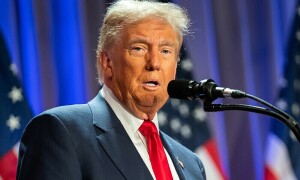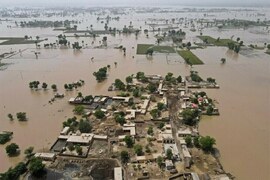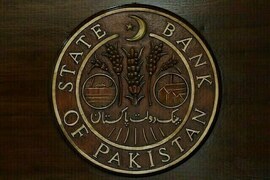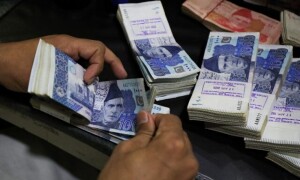Saturday's elections in Afghanistan held two pleasant surprises: one, the people turned out in large numbers to vote for a new president and provincial councils in 34 provinces despite the threat of Taliban violence and heavy rains. And a related second surprise was that the Taliban failed to hold good on their threat to disrupt the polls.
An estimated 60 percent of the 12 million eligible voters in a predominantly tribal society came out to cast ballots. They voted with their feet to reject what the Taliban represent and to seek an end to pervasive poverty and corruption through an accountable system of governance. And in so doing also disproved a self-serving argument Western governments and their 'favourite' intellectuals have been making for long in defence of the status quo: that the people living in conservative tribal societies, such as those ruled by absolute Middle Eastern monarchies, are content with their conditions following tribal traditions. Democracy to them, goes the argument, is an unwelcome Western notion. At the risk of life and limb, the Afghans have demonstrated that people everywhere aspire to have freedom, democracy, peace, and progress.
The Taliban launched a number of attacks on polling stations as well as voters also exploding several minor roadside bombs, but could not create the desired impact to keep the people from voting. True, the Kabul government and international forces had undertaken a massive security operation to thwart Taliban attacks. Some 400,000 Afghan and international troops were on the standby as three rings of security surrounded every polling centre within a five kilometer radius. Still, considering that the electoral exercise involved thousands of polling stations spread out all over the vast country they could have caused substantial violence. Fortunately, the day passed off without any major incident.
So why did the Taliban not succeed in derailing the electoral exercise? A wishful explanation is that they have been weakened to a great extent. They seem to have purposely wanted, however, to keep it a low intensity affair. The foreign forces are to leave the country soon. They would want to wait till then to sort out things with the new government in Kabul.
It will take a while for the election result to be declared. Out of the eight presidential candidates three - Abdullah Abdullah, Zalme Rassoul and Ashraf Ghani Ahmadzai - are expected to emerge as frontrunners. In the likely event none of them gets more than 50 percent of the vote, a runoff would be held on May 28. Notably, all three are pro-Western (two of them hold dual nationalities of Afghanistan and different Western countries), and committed to signing a security agreement with the US that Hamid Karzai had resisted for his own reasons. The agreement is to allow a residual force of about 10,000 American soldiers to stay back following the withdrawal of combat troops by the end of this year, ostensibly, to train Afghan forces and carry out drone operations against al Qaeda remnants. In simpler words, it is about retaining military bases as an element of the Obama administration's wider strategic architecture.
The Taliban must be exhausted fighting the world's mightiest military power for thirteen long years. But they are not expected to let the new government give the US military bases. Uncertainty hangs over the country's future. The Afghan National Army looks too weak to take on the Taliban. It is not a cohesive, strong force. Many Taliban sympathisers have infiltrated the military and police ranks. On the eve of elections, two female Western journalists were shot - killing one and injuring the other - by a police officer while travelling in an election workers convoy delivering ballot boxes in Khost. He later calmly surrendered to his colleagues.
The key challenge before the new government is to make peace and reconciliation with the Taliban. In the event of failure they will step up violence as soon as the US forces step out. We can expect to see a replay of the past, when the Soviet-backed Nijibullah government ruled in Kabul and much of the rest of the country was controlled by regional warlords; or later under the Northern Alliance government, which was restricted to Kabul and the northern region. The rest of the country could again fall under the sway of Taliban and warlords. al Qaeda elements within the Taliban ranks would love to see such a scenario so they could stay on to pursue their violent ideological agenda. That is in no one's interest - neither the war-weary Afghan people nor the interested outsiders.
Such an outcome will have particularly devastating consequences for Pakistan as it grapples with its own problem of violent extremists. Neither would it bring any benefit to other countries anxious to play their own power games in the changing Afghanistan. It has become a cliché for people to say a peaceful and stable Afghanistan is in the interest of all. Those concerned must also try and help achieve that goal by letting the Afghan people deal with their problems on their own and work towards peace and reconciliation. As regards Pakistan, hopefully, it has leant a sobering lesson from its past experience of interfering in Afghanistan's affairs as part of an ill-conceived policy of acquiring 'strategic depth' in that country. Prime Minister Nawaz Sharif can be believed when he says Pakistan has no favourites in Afghanistan, and that his government supports an Afghan-led and Afghan-owned peace process.
saida_fazal@yahoo.com
BR100
15,235
Increased By
150.4 (1%)
BR30
44,824
Increased By
812 (1.85%)
KSE100
149,971
Increased By
1353.3 (0.91%)
KSE30
45,655
Increased By
407.2 (0.9%)






















Comments
Comments are closed.